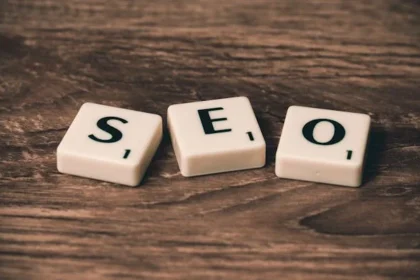Introduction
Can a business be profitable while also contributing to a better world? In today’s world, where social responsibility is no longer just an option but a necessity, companies that prioritize ethical practices and sustainability are not only making a positive impact but are also thriving in a competitive marketplace. This article examines how businesses dedicated to creating a better world, or BetterThisWorld businesses, are redefining success.
What is a BetterThisWorld Business?
A BetterThisWorld business refers to a company that combines profitability with a strong commitment to social and environmental responsibility. These businesses prioritize sustainability, ethical production methods, and positive community impact. Unlike traditional companies that may focus solely on maximizing profits, these organizations are built on values that aim to improve society and the environment.
Some of the key characteristics of a BetterThisWorld business include:
- Sustainability: These businesses actively work to reduce their environmental impact by sourcing materials responsibly, reducing waste, and adopting eco-friendly technologies.
- Fair Trade and Ethical Practices: These businesses ensure fair wages for workers and support practices that promote equity and social justice.
- Transparency: They openly share their sustainability efforts and business practices, allowing consumers to make informed decisions.
The Importance of Ethical Business Practices
In the past, businesses may have prioritized profit over everything else, but times are changing. Modern consumers are increasingly aware of the ethical impact of their purchasing decisions. According to a recent study, 73% of global consumers say they are willing to pay more for a product that is sustainable or ethically sourced.
Consumer Expectations:
Today’s customers demand more than just high-quality products; they also want to know that their purchases align with their values. Consumers are seeking companies that are dedicated to environmental protection, uphold fair labor practices, and make a positive contribution to society.
Building Trust and Loyalty:
When businesses operate ethically, they build trust with their customers. Ethical business practices lead to increased customer loyalty, as people are more likely to support brands that reflect their values. By doing so, businesses create long-term relationships with customers, turning them into brand advocates.
Environmental Responsibility:
Another important aspect of ethical business practices is reducing environmental harm. In a world increasingly affected by climate change, businesses that take proactive steps to minimize their ecological footprint not only do the right thing but also gain a competitive edge. Companies that adopt sustainable practices often see reduced costs in the long term through energy savings, waste reduction, and improved operational efficiencies.
How BetterThisWorld Businesses Are Shaping the Future
Businesses committed to positive social impact are influencing the future of industries. Companies like Patagonia and Ben & Jerry’s are exemplary organizations that have integrated social responsibility into their business models. These brands not only offer products that align with their values but also engage in activism and advocacy for causes they believe in.
Shaping Industry Standards:
As more businesses adopt these practices, the standard for what constitutes a responsible business is shifting. Industries are becoming more transparent, and sustainable practices are increasingly being incorporated into regulations and consumer expectations. This movement is creating a ripple effect across sectors, with an increasing number of companies making changes to align with global sustainability goals.
Rising Consumer Demand for Ethical Brands:
There is a growing market for ethical and sustainable brands. Research suggests that 66% of global consumers are willing to pay more for products from companies that are committed to positive environmental and social practices. This growing demand is a clear sign of a more sustainable and ethical future, offering businesses that embrace these values a promising market to thrive in.
Learn more about sustainable business practices on Wikipedia.
Challenges Faced by BetterThisWorld Businesses
While there are significant benefits to running an ethical business, it’s not without challenges.
Financial and Operational Hurdles:
One of the biggest hurdles for businesses aiming to adopt ethical practices is the initial financial investment. Ethical sourcing, sustainable production, and fair labor practices can often come with higher costs. For instance, sourcing materials from certified sustainable farms or paying workers fair wages might increase production costs, which could impact short-term profitability.
Balancing Profitability with Social Impact:
Another challenge is striking a balance between social impact goals and business profitability. For many entrepreneurs, the pressure to remain profitable while sticking to ethical practices can be overwhelming. Businesses must strike a balance between their social objectives and financial goals to ensure long-term sustainability.
Supply Chain Complexities:
Managing a transparent and ethical supply chain can be a challenging task. It requires a rigorous commitment to monitoring suppliers, ensuring they adhere to the same moral standards. This can involve additional costs and resources, but is essential for maintaining a company’s credibility.
Opportunities for BetterThisWorld Businesses
Despite the challenges, businesses that adopt ethical and sustainable practices have several opportunities to thrive.
Consumer Loyalty and Market Expansion:
As mentioned earlier, consumers are increasingly drawn to brands that align with their values. By focusing on sustainability and ethical practices, businesses can tap into a growing market of conscious consumers. Furthermore, these businesses are often rewarded with customer loyalty, as consumers are more likely to return to brands they trust.
Long-Term Financial Benefits:
Although the initial investment may be higher, businesses that prioritize ethics often see long-term financial rewards. Sustainable practices can result in reduced operational costs (e.g., energy savings, waste reduction), while ethical practices can foster a stronger brand reputation, leading to higher sales. In the long run, these financial benefits can outweigh the initial costs, making ethical and sustainable practices a sound investment for businesses.
Innovation and Growth:
Adopting sustainable practices can spur innovation. For example, companies are developing new products, services, and technologies that address sustainability challenges. This innovation can provide a competitive advantage and open up new revenue streams. By embracing sustainability and ethical practices, businesses cannot only make a positive impact but also foster creativity and drive growth through innovative solutions to social and environmental issues.
Steps to Building a BetterThisWorld Business
So, how can you build a business that makes a positive impact while remaining profitable? Here are some practical steps:
- Adopt Sustainable Practices: Start by integrating sustainability into your supply chain. Utilize eco-friendly materials, minimize waste, and reduce energy consumption.
- Ensure Fair Labor Practices: Ensure that your employees are treated fairly and work with suppliers who also respect fair labor standards.
- Be Transparent: Openly communicate your business practices with your customers. Transparency builds trust and helps you stand out in a crowded market.
- Collaborate with Like-Minded Organizations: Consider partnerships with other companies, NGOs, or social enterprises that share your values. Together, you can amplify your impact.
Conclusion
In conclusion, businesses that aim to make a positive impact on the world are not just a trend they are the future of business. By prioritizing ethical practices, sustainability, and social responsibility, businesses can create long-term success while contributing to the greater good. The path to becoming a BetterThisWorld business may come with its challenges, but the rewards, both financial and social, are well worth the effort.






